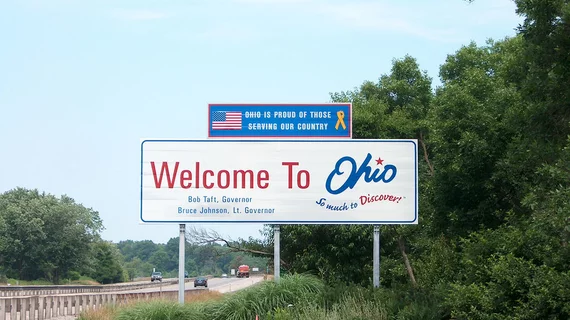Attorney General Jeff Session is preventing two Ohio doctors from prescribing opioids because they allegedly dispensed the medications without a legitimate medical purpose.
Sessions announced that the Department of Justice (DOJ) was placing temporary restraining orders on the doctors during a speech in Cleveland, on Wednesday, Aug. 22.
Ohio was second in the nation in overdose death rates in 2016, with more than 4,000 residents dying of unintentional drug overdoses, according to the Ohio Department of Health—a rate nearly twice the national average. Both physicians are from Northern Ohio and represent the first ever civil injunctions under the Controlled Substances Act against doctors who allegedly prescribed opioids illegally, Sessions said.
“These doctors were simply drug dealers in white lab coats,” U.S. Attorney Justin Herdman said in a statement Wednesday. “They illegally prescribed painkillers and other drugs for no legitimate medical purpose. Putting so-called physicians like these out of business is one of several steps we are taking to turn the tide on the opioid and drug crisis that has caused so much death and heartbreak in our community.”
Sessions called out Michael Tricaso, MD, who works in Akron and Painesville, for allegedly selling narcotics to an undercover DEA agent in a hotel parking lot over a period of three months. The narcotics sold included Percocet, and Tricaso also allegedly wrote prescriptions for an undercover DA agent as well as two sources for the department for steroids and Percocet without legitimate medical purpose.
Tricaso, who operates Better Living Clinic, cannot write prescriptions even though he has not been convicted of a crime.
Gregory Gerber, MD, of Sandusky, is also accused of prescribing “countless” opioids illegally and caused the submission of false claims to Medicare Part D. He prescribed oxycodone to an undercover agent who never said she was in pain, according to the injunction. Gerber allegedly ordered no tests and performed only a minimal physical examination, and he eventually doubled the dosage and strength of the pills, Sessions said. Furthermore, Gerber is accused of accepting $175,000 in kickbacks from a company that makes a fentanyl drug intended to treat cancer patients, and he prescribed it to patients without cancer.
“We seek to deny these doctors the authority to continue prescribing drugs,” said Sessions, who commissioned the DOJ's Prescription Interdiction & Litigation (PIL) Task Force to coordinate criminal and civil actions to fight the opioid crisis.
Both investigations are ongoing, according to DOJ.

